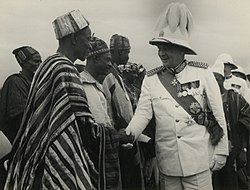Imagine a world where the voices of the marginalized are amplified, and change is ignited from the roots – a world made possible by the transformative power of education.
Throughout history, marginalized communities have often been relegated to the fringes of political and social life. Their stories, needs, and aspirations are frequently overlooked, drowned out by dominant voices and entrenched power structures. Yet, as the world becomes increasingly interconnected, the necessity of amplifying these silent voices has never been more pressing. As Nelson Mandela aptly said, “Education is the most powerful weapon which you can use to change the world.” This sentiment is especially true for communities pushed to the margins, where quality education becomes a crucial tool for dismantling systemic inequalities.

These inequalities are not abstract concepts; they are the daily realities of systemic disadvantage, manifesting as economic barriers, political marginalization, and social ceilings that stifle potential.
At the heart of this transformation lies education: a profound force capable of fostering political awareness and nurturing leadership, thereby creating pathways for marginalized individuals to ignite change from the ground up. Education, at its best, does more than impart academic knowledge; it empowers individuals to critically engage with the world around them. For marginalized communities—whether defined by race, gender, socioeconomic status, disability, or geography—access to quality education can be both a shield against oppression and a sword for advocacy. As Martin Luther King Jr. noted, “The function of education is to teach one to think intensively and to think critically. Intelligence plus character—that is the goal of true education.” This empowerment begins in the classroom, where learners are introduced not just to the mechanics of language, mathematics, or science, but to the principles of justice, equality, and civic engagement.
The Transformative Role of Education in Fostering Political Awareness and Leadership
One of the most significant ways education amplifies silent voices is by fostering political awareness. When curricula are inclusive and reflective of diverse histories and perspectives, students begin to see themselves as active participants in society, not passive observers. As Chinua Achebe aptly put it, “Until the lions have their own historians, the history of the hunt will always glorify the hunter.” Civic education demystifies political systems and encourages critical examination of laws, policies, and governance. For many marginalized youths, this is their first introduction to the idea that their voices matter—that they can question, challenge, and ultimately change the systems that have historically excluded them. As Maya Angelou once said, “There is no greater agony than bearing an untold story inside you.” Education provides a platform for marginalized individuals to share their stories, challenge dominant narratives, and assert their presence in the public sphere.
However, the journey from awareness to action requires more than knowledge alone. Leadership skills must be cultivated through opportunities that allow marginalized individuals to practice agency and responsibility. Inclusive educational environments that encourage debate, student governance, and community projects help students from underrepresented backgrounds to find their voices and develop confidence. These experiences are crucial: they provide practical skills in communication, negotiation, and organization, all of which are essential for effective leadership. As Simon Sinek said, “Leadership is not about the next election, it’s about the next generation.” By fostering leadership skills and civic engagement, education can empower marginalized individuals to create lasting change and build a more just and equitable society. Moreover, when students witness their peers and mentors from similar backgrounds assuming leadership roles, it breaks powerful psychological barriers and establishes a blueprint for what is possible.
Yet, the promise of education remains unfulfilled for many. Systemic inequities—such as underfunded schools, biased curricula, and limited access to higher education—persist, particularly for marginalized groups. To truly ignite change, it is imperative to address these disparities head-on. This means investing in educational infrastructure, recruiting and training diverse educators, and designing curricula that validate the experiences of all students. As Martin Luther King Jr. warned, “Injustice anywhere is a threat to justice everywhere.” It also involves creating pathways beyond the classroom, such as scholarships, mentorship programs, and internships, which can bridge the gap between education and real-world political engagement.
The ripple effects of such reforms are profound. When individuals from marginalized communities assume leadership positions—whether in local government, activism, or public service—they bring fresh perspectives and lived experiences that enrich public discourse and policymaking. Their leadership challenges stereotypes, confronts systemic injustices, and inspires others to follow suit. In this way, education serves not only as a ladder of social mobility but as the bedrock of a more just and inclusive society.
In conclusion, the amplification of silent voices and the ignition of grassroots change hinge on the provision of quality education and genuine opportunities for all. By fostering political awareness and nurturing leadership among marginalized communities, education transforms individuals into advocates, leaders, and changemakers. It is through this process that societies move closer to realizing the values of democracy and equality—not as distant aspirations, but as lived realities. In amplifying the voices once silenced, education plants the seeds for a future where everyone, regardless of their origins, can help shape the course of history.






Good work done, sir.